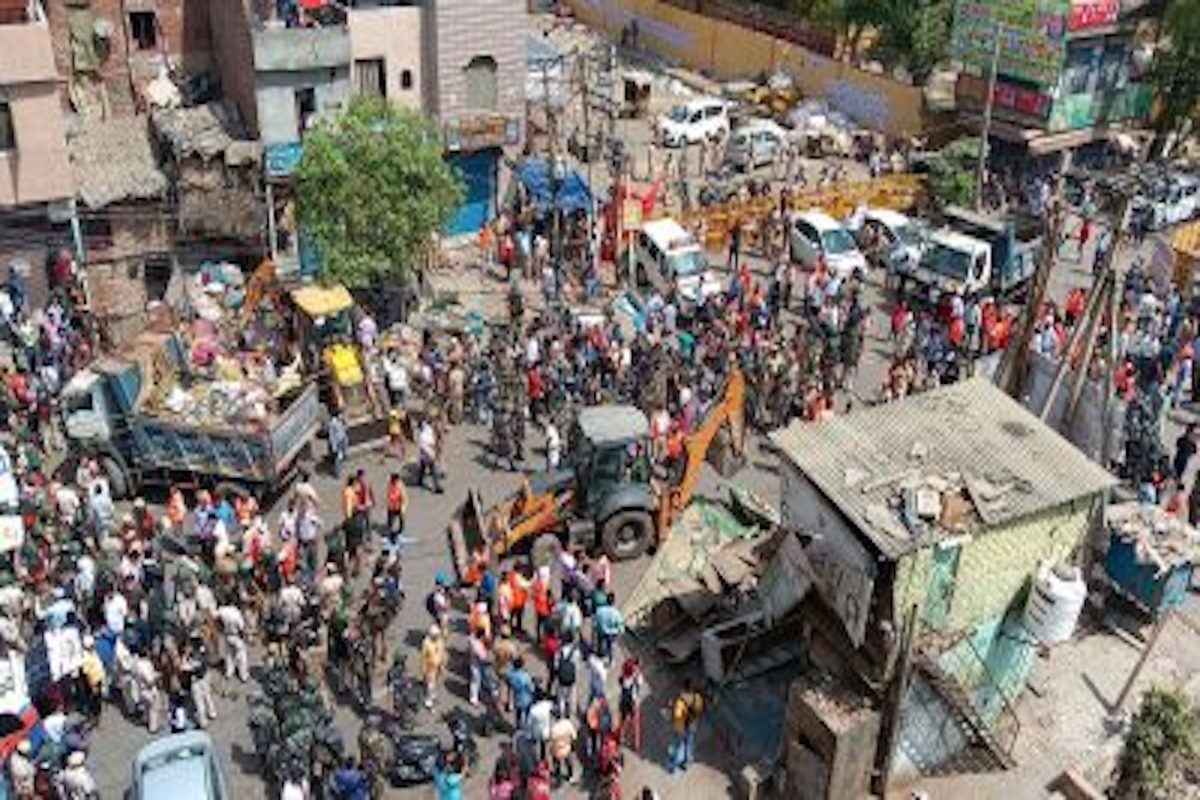Recent communal clashes in Jahangirpuri (Delhi) and Khargone occurred alongside similar, near-simultaneous incidents in eight other states. In early April there were communal clashes in Karauli, Rajasthan. The nation had faced violence over the Citizenship Amendment Act and long-drawn protests over the farmers’ bills. While communal clashes are not new and have occurred at regular intervals, their synchronization across the country is worrisome. At the outset, it is incorrect to blame any community for these, while simultaneously assessing to whom these clashes have benefitted.
In recent years, India has faced global criticism for its treatment of minorities. The United States Commission on International Religious Freedom, a bipartisan body has recommended that India be designated as a ‘country of particular concern,’ for ‘egregious religious freedom violations.’ A debate was held in the British Parliament on 22 February this year titled, ‘Persecution of Christians and religious minorities in India.’
Advertisement
Meenakshi Ganguly, the South Asia Director for Human Rights Watch stated in January, “the BJP government has created an atmosphere in which minorities feel unsafe”. Antony Blinken commented on human rights in India at his joint press conference with S Jaishankar, after the recently concluded 2+2 meeting in Washington. The government is accused of inciting communal violence by projecting a Hindutva image.
Every time there are communal riots in India, Pakistani media comments on the targeting of Muslims. Imran Khan went so far as to say, “Modi is not a normal man; he’s a psychopath and a product of the RSS. His party is a product of the RSS and those belonging to the RSS consider Hitler’s Nazi Party a role model.” In Pakistan, India is projected as a state which tramples Kashmiri Muslims and targets minorities. Every communal incident is exploited by Pakistani media networks with their foreign office condemning India.
The intention of Pakistan is to build a narrative of India being Islamophobic. It hopes that this would impact India’s relations with Middle East countries, whose investment and trade ties with India are hurting their relations with Pakistan. Currently, Pakistan has no support for Kashmir. While the OIC meeting in Islamabad was discussing Kashmir, a UAE delegation was visiting the union territory with intentions to invest. The UAE ambassador in Delhi accompanied the PM on his Jammu visit along with an investment delegation. This displays that Middle Eastern countries do not consider Kashmir to be a disputed territory. PM Modi has been honoured by most of these nations, while Pakistani leaders have been ignored.
There are people in India who exploit communal clashes in Western media hoping to damage India’s global reputation. Their hate for the ruling dispensation leads to them being anti-India while leveraging all that India offers. Their publications project India as Islamophobic and anti-minority.
Indian political parties exploit communal violence to further their individual agendas. They sympathise with those whom they believe are potential vote banks, ignoring the rest. Such actions increase the polarization of society rather than heal it. Maturity in politics is essential if we are to unite as a nation. Law and order being a state subject make police actions dependent on which political party rules the state.
Kashmir is a prime example of the global exploitation of vulnerable youth. Stone pelting and forced bandhs were financed by hawala funds flowing from Pakistan. Once these funds were blocked and the Hurriyat made non-functional, stone-pelting came to an end. Pakistan realised that it cannot influence Kashmir as its funding channels had been blocked. There were reports that Sikhs for Justice were at the forefront in funding the farmer agitation. The withdrawal of farm laws changed the scenario and made their efforts redundant.
Currently, there are efforts from inimical nations and a few biased NGOs to rake up communal tensions across the country. Funds are provided as also religious leaders goaded to incite the vulnerable populace under every pretext. Intelligence reports indicate that these actions are likely to spread. Most incidents occur in localities where unemployment is high. Youth are provoked into violence after being incited by fake social media posts. This occurs across all religions. These incidents will increase unless the government comes out with a broad-based strategy of engagement alongside firm actions.
This should include increased interaction with youth leaders of localities cutting across religions. Their involvement in helping curb violence and fake news could be a game-changer. National leaders must be at the forefront in advocating peace and brotherhood, rather than maintaining silence. Orders for arresting those sending hate messages to exist but are not being seriously implemented. Intelligence agencies must join hands in curbing the flow of illegal funds.
Finally, NGOs that fund anti-national personalities must be acted upon and banned. Action must be top-down rather than bottom-up, implying targeting the sources of funding, rather than the recipient, who is small fry in a large game.
Copying the Israeli model of the destruction of property of those participating in violence would only pay short-term dividends, as witnessed in Gaza. These incidents would be exploited by instigators. As in Jahangirpuri, the destruction of illegal properties must be without religious bias and projected as such. Its wrongful exploitation by a few media elements should be contested. If the Kashmir violence could be curbed over time, there is no reason why it cannot be done for the rest of the country.
While India refuses to accept lectures from other nations on its internal issues, it needs to act to cool down tempers. Interactions between the political and administrative machinery and the local public are essential to achieving true secularism. The nation needs to unite to grow while divisions will move it towards ruin. The decision is ours. Our youth are vulnerable and stop- ping their exploitation is our primary responsibility. The nation must fight its enemies united, rather than divided.
(The writer is a retired Major-General of the Indian Army. )











